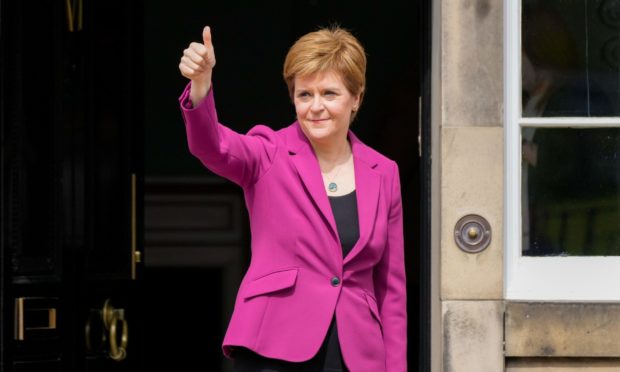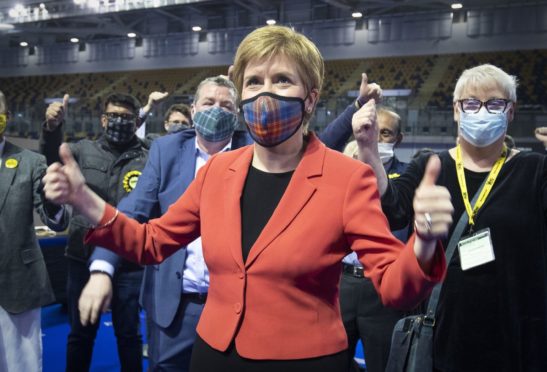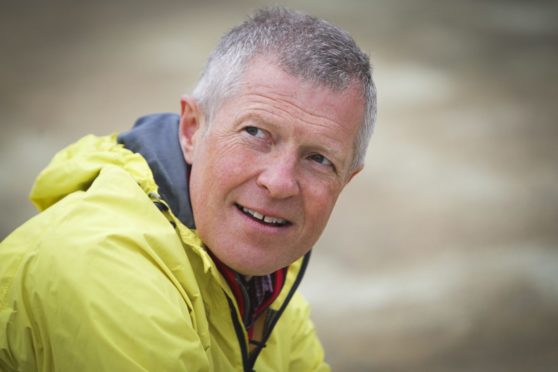Nicola Sturgeon is poised to be re-elected as First Minister of Scotland today at a special vote in parliament.
Despite Ms Sturgeon holding the position since 2014 and being the leader of the biggest party in Holyrood, she does not automatically stay in the top job.
MSPs will be asked to put forward their nominations before 1.30pm.
How is the first minister elected?
Under the Scotland Act, the first minister must be elected within 28 days of the Scottish Parliament election – if not, a whole new election will need to be held.
All nominations for the position of first minister must be proposed by at least one MSP, and then seconded by at least one other for them to officially count.
Each nominee is given five minutes to speak in the debating chamber to convince the other MSPs to give them their vote.
If a candidate wins more votes than the total number received by all other candidates, and the total number of votes cast is more than a quarter of the total number of seats in the parliament (129), that candidate will be elected.
If there are more than two candidates up for the position, the candidate with the fewest votes will be eliminated in each round of voting.
However if there is only one candidate, members will simply be asked to vote for or against that person, and they just need a majority to be declared the winner.
Will anyone else stand against Nicola Sturgeon for first minister?
Willie Rennie, leader of the Scottish Lib Dems, has said he will stand against Nicola Sturgeon for first minister.
He previously stood against Ms Sturgeon in 2016, but was defeated after winning five votes to Ms Sturgeon’s 63.
Mr Rennie, who represents North East Fife, said: “In a parliament of minorities it is important that there is a challenge.
“This should not just be a SNP cakewalk.
“Nicola Sturgeon and Douglas Ross are both obstacles on the path to tackling the issues that really matter.
“They both want to spend the next five years arguing over independence.
“As first minister I would focus on education, mental health, jobs and the climate emergency.
“That’s a positive plan for Scotland.
“That’s how we put recovery first.”
The decision to oppose is often just a symbolic move in order to give an opposition member time to speak.


